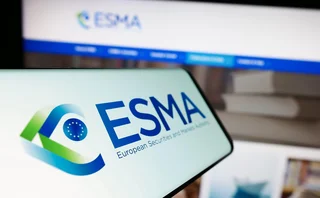
Editor's Letter
Last month's conviction of Ken Lay and Jeff Skilling on charges relating to the collapse of Enron felt like another important landmark on the road to recovery for energy trading. The 'end of Enron effect' certainly added to the general sense of optimism that was unmissable in Houston last month when the Energy Risk team travelled there for Energy Risk USA 2006. With more than 300 attendees, it was our biggest event since Enron's collapse.
Energy Risk events are, I was told by many conference delegates, viewed as something of a barometer for the health of the energy trading industry, so we were not the only ones delighted with the high attendance. Like everyone at the conference, we also hope it is a good indicator of how well the market is picking up again.
Not only has the worst of the Enron effect now been well and truly absorbed by the market, but the market is arguably stronger as a result. The integration of the Enron diaspora around the market in the months and years after its fall undoubtedly benefited the market as a whole as well.
But recently there has been a new development - the re- emergence of the energy merchant model in smaller, privately-run companies. These discrete centres of Enronian-style genius spread around the market have the potential to take the industry in some very exciting directions. And it's important that they be allowed to do so. When trying to protect against a repeat of the Enron catastrophe it's crucial that the brilliance of Enron is not overshadowed or muddled up with the fraud case. The baby mustn't be thrown out with the bath water.
Only users who have a paid subscription or are part of a corporate subscription are able to print or copy content.
To access these options, along with all other subscription benefits, please contact info@risk.net or view our subscription options here: http://subscriptions.risk.net/subscribe
You are currently unable to print this content. Please contact info@risk.net to find out more.
You are currently unable to copy this content. Please contact info@risk.net to find out more.
Copyright Infopro Digital Limited. All rights reserved.
As outlined in our terms and conditions, https://www.infopro-digital.com/terms-and-conditions/subscriptions/ (point 2.4), printing is limited to a single copy.
If you would like to purchase additional rights please email info@risk.net
Copyright Infopro Digital Limited. All rights reserved.
You may share this content using our article tools. As outlined in our terms and conditions, https://www.infopro-digital.com/terms-and-conditions/subscriptions/ (clause 2.4), an Authorised User may only make one copy of the materials for their own personal use. You must also comply with the restrictions in clause 2.5.
If you would like to purchase additional rights please email info@risk.net
More on Regulation
Hong Kong derivatives regime could drive more offshore booking
Industry warns new capital requirements for securities firms are higher than other jurisdictions
Will Iosco’s guidance solve pre-hedging puzzle?
Buy-siders doubt consent requirement will remove long-standing concerns
Responsible AI is about payoffs as much as principles
How one firm cut loan processing times and improved fraud detection without compromising on governance
Could one-off loan losses at US regional banks become systemic?
Investors bet Zions, Western Alliance are isolated problems, but credit risk managers are nervous
SEC poised to approve expansion of CME-FICC cross-margining
Agency’s new division heads moving swiftly on applications related to US Treasury clearing
ECB bank supervisors want top-down stress test that bites
Proposal would simplify capital structure with something similar to US stress capital buffer
Clearing houses warn Esma margin rules will stifle innovation
Changes in model confidence levels could still trip supervisory threshold even after relaxation in final RTS
BlackRock, Citadel Securities, Nasdaq mull tokenised equities’ impact on regulations
An SEC panel recently debated the ramifications of a future with tokenised equities







